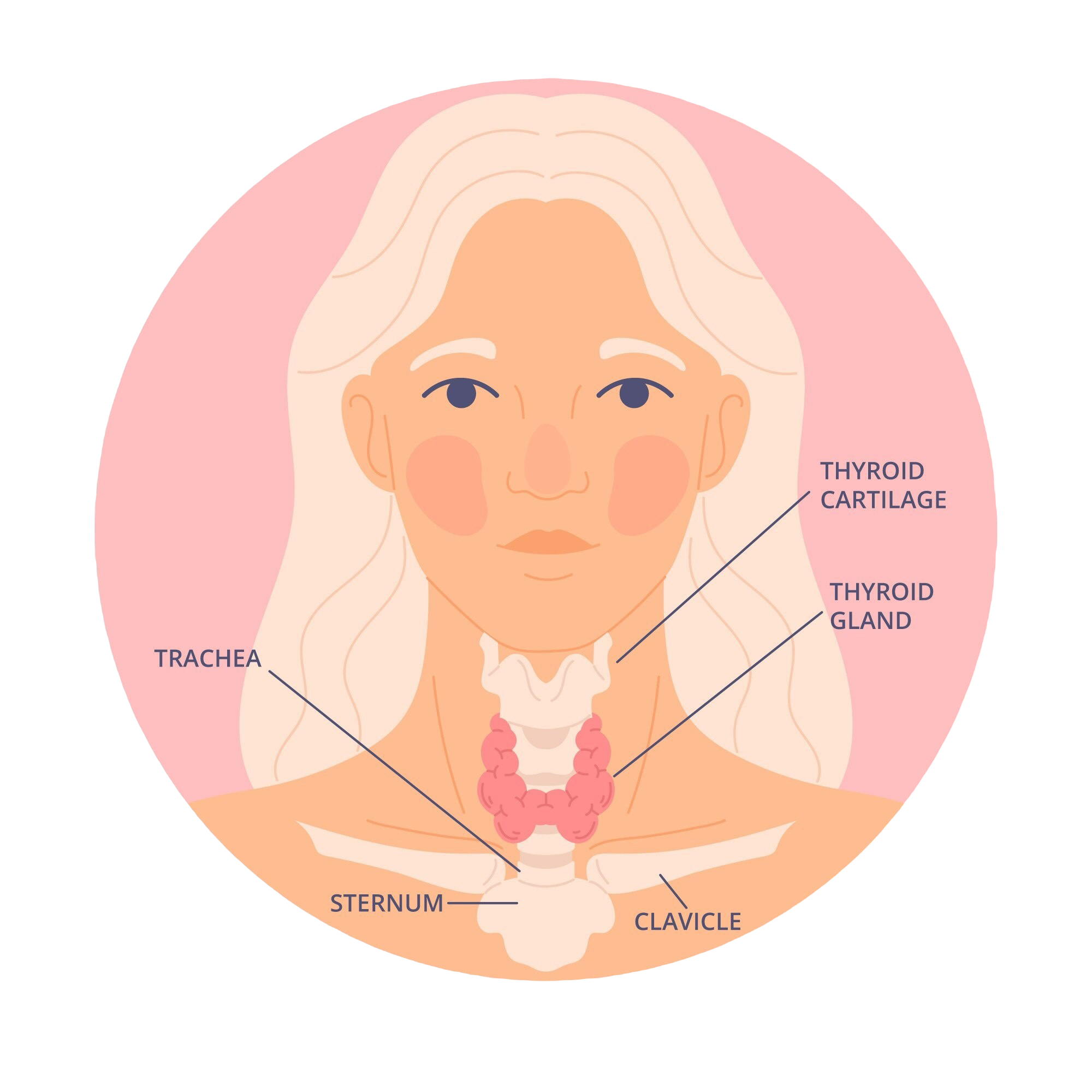The Link Between Thyroid Health and Chronic Conditions: Why Testing is Crucial
By Dr Kang Waye Hann, Consultant Internal Medicine Physician and Endocrinologist
Nestled at the front of your neck, the thyroid gland is often referred to as “the butterfly gland” for two reasons: its butterfly-like shape and, more importantly, the detrimental “butterfly effect” that abnormalities in this gland can have on overall well-being. The thyroid gland acts as a factory, producing thyroid hormones—chemicals that coordinate and regulate essential bodily functions, particularly metabolism. Too much or too little of these hormones leads to hyperthyroidism or hypothyroidism, respectively.

Hyperthyroidism, a condition where the thyroid produces excessive hormones, typically presents with dramatic symptoms such as:
Hand Tremors
Racing Heartbeat
Loose stools
Hot flushes
Unexplained weight loss
In elderly individuals, the symptoms can sometimes be subtle, and many are unaware of the condition until it is detected incidentally through a blood test. Excessive thyroid hormones can strain the heart, causing it to beat too fast or irregularly, which may eventually lead to heart failure, impairing the heart’s ability to pump blood efficiently to vital organs. High thyroid hormone levels also weaken bones, increasing the risk of osteoporosis—a condition where even low-impact injuries can result in hip or spine fractures.
In contrast, hypothyroidism occurs when the thyroid produces insufficient hormones due to an underactive gland. Symptoms are often vague and include:
Excessive Weight Gain
Fatigue
Constipation
Cold Intolerance
Poor Memory
In tropical climates, where heat and humidity are common, patients may rarely complain of cold intolerance. When thyroid hormone levels are too low, the slowed metabolism can cause the heart to beat ineffectively, potentially leading to heart failure. Additionally, reduced metabolism slows cholesterol processing, resulting in higher cholesterol levels in these patients.
Testing for hyperthyroidism or hypothyroidism requires only a simple blood test called the “thyroid function test,” which can be performed at any time of day, regardless of food intake. Patients are encouraged to consult their family doctor or general practitioner if they exhibit symptoms, notice neck swelling, or have a strong family history of thyroid disorders. Both hyperthyroidism and hypothyroidism are typically treatable with medication.
However, interpreting thyroid function test results can sometimes be challenging, as various factors may influence the outcomes. This may lead to discordant results, making it difficult to determine whether a patient is hyperthyroid, hypothyroid, or even normal. In such cases, or when treatment proves complicated, consulting an endocrinologist is highly beneficial.














